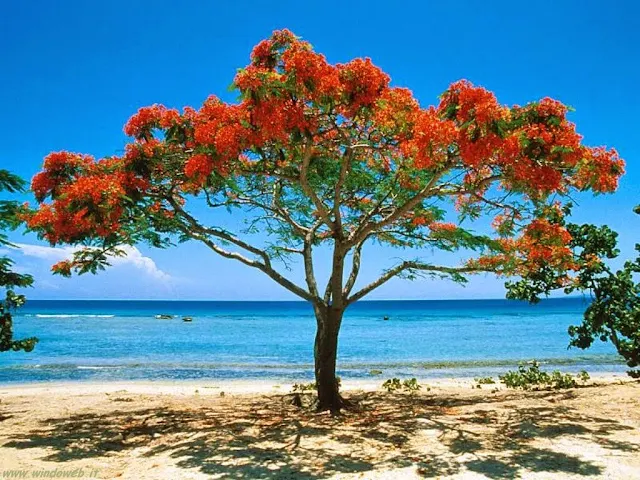Still An American Obsession
Of all the journalists and authors in America, Barbara Demick is one of the most honored. The Yale-educated Ms. Demick is the top foreign correspondent for the Los Angeles Times and she served as the Beijing bureau chief in China from 2008 to 2014. She recently took her son on a visit to Cuba and then documented that trip with a book-length essay in one of America's highest profile and most respected magazines -- The New Yorker. The Jan. 10th-2016 essay was entitled "Shopping In Cuba." It seems the sophisticated Ms. Demick expected her shopping experience in Cuba to resemble a routine visit to one of America's most modern malls. Well, it wasn't quite like that and Ms. Demick equated it to...North Korea.
And speaking of North Korea, Barbara Demick's award-winning 2010 book was entitled: "NOTHING TO ENVY: Real Lives in North Korea." So, she knows North Korea. After her trip to Cuba, Ms. Demick wrote in her high-profile Jan. 10-2016 article in The New Yorker these exact words: "But Cuba also looks to me like a North Korea with Palm Trees. To be sure, Cuba has evolved politically, investing in education and health care rather than weapons of mass destruction." Ummmmm...? Ms. Demick's grudging compliment to Cuba regarding its educational and health priorities seemed to be an obligatory back-handed admission.
The rest of Barbara Demick's essay about her trip to Cuba seemed intent on demeaning the island by comparing it to North Korea and apparently trying to differentiate today's island from the halcyon days of the 1950s when the U.S.-backed Batista-Mafia dictatorship had nice shopping areas -- at least for the very rich if not for everyday Cubans. In this week's essay in The New Yorker, Ms. Demick wrote: "The problem might be that I spent half of my trip in Trinidad, a cobblestoned colonial city on the Caribbean coast." She detested Trinidad, writing about, "My inability to obtain ice cream for my son. When we finally found it, on the menu of an expatriate beach club in Havana, it arrived melted. And the waitress couldn't find a spoon." Ummmm....? Obviously, Ms. Demick is accustomed to finding perfect ice cream, along with handy spoons, when she shops at America's modern malls. BUT NOT IN TRINIDAD, the quint little city on Cuba's south-central "Caribbean coast."
This map shows the location of Trinidad in south-central Cuba.
I have been to the cobble-stoned colonial city of Trinidad, Cuba. It clings very proudly to its splendid, colorful traditions. I have mentioned several times in these Cubaninsider essays that Trinidad was my favorite Cuban city because of the friendliness of its citizens as well as its nice, unique architecture.
I distinctly remember that, when I visited Trinidad, I had some delicious ice cream and even got to eat it with an appropriate spoon. If, on the other hand, I found some things not as elite or convenient as in the United States, I never complained about it either in Cuba or when I returned to Wyoming, USA.
This is the beach that adorns Trinidad. Tourists have often rated Varadero Beach in Cuba as "One of the world's most beautiful beaches." I have also eaten ice cream at an outdoor table at Varadero Beach and I don't dispute its world-class rating. {On that above map you can see that Varadero is in northeastern Cuba just an hour's drive along the coastal highway from Havana}. Yet, I still consider Trinidad even more beautiful than Varadero but I didn't visit either Cuban city with the predisposed idea of demeaning them.
Which brings me back around to Barbara Demick's high-profile excoriation of Cuba, especially Trinidad, in this week's The New Yorker magazine. Her essay included the New York Times photo depicted above, with the caption reading: "In the markets and shops of Cuba are an ample supply {of things} but certain mundane provisions are not." Ummmmm...? One such "mundane" thing missing in Cuba, according to Ms. Demick, was good ice cream...and a handy spoon to eat it. Going to such mundane lengths to blame Revolutionary Cuba would be alright, I reckon, if such essays from high-profile American journalists-authors were fair and balanced, which they seldom are. While Revolutionary Cuba can justifiably be blamed for a lot of things, including perhaps the abundance of overly ripe bananas in this photo, when it comes to Cuba, there is a lot of blame to go around from America's standpoint as opposed to just blaming Revolutionary Cuba. But most U. S. journalists prefer just one side of a two-sided story.
Perhaps, for example, the U. S. should be blamed for its unconscionable support of the thieving, murderous Batista-Mafia dictatorship in Cuba beginning in 1952, which spawned a notable revolution.
Perhaps, for example, the United States should be blamed for supporting the Batista-Mafia dictatorship instead of supporting Cuban mothers like these who were the prime victims of Batista's sheer brutality.
Perhaps, for example, the U. S. should be blamed for not helping or even acknowledging the extreme poverty rampant in Cuba during the Batista-Mafia reign, facts readily reported by the New York Times.
Perhaps, for example, the U. S. should be blamed for Mafia thugs like Meyer Lansky looting satchel-full loads of money, as reported by Life Magazine, while most Cubans were mired in abject poverty and many Cuban mothers were marching in the streets to protest the murders of their children to quell dissent.
Or, perhaps, the U. S. should be blamed for necessitating a revolution that would, and did, respond to the extreme excesses of the Batista-Mafia dictatorship with the revolution that triumphed in 1959.
Or, perhaps, the U. S. should be blamed for American Burt Glinn being in Cuba in January of 1959 photographing Fidel Castro's triumphal arrival in Havana while, perhaps, Burt Glinn could have been photographing much calmer scenes in the U. S.
Or, perhaps, the U. S. should be blamed for the ill-conceived CIA-Cuban exile attack at the Bay of Pigs in Cuba in April of 1961, which failed to recapture Cuba but only served to strengthen its resolve.
Or, perhaps, the U. S. should be blamed for devising and executing the stupidly conceived invasion at the Bay of Pigs that only served to greatly enhance the already legendary reputation of Fidel Castro, who still wears the Bay of Pigs banner at age 89.
Or, perhaps, the U. S. should be blamed for montages like this on display today in Cuba and the Caribbean honoring the 73 victims of Cubana Flight 455, the civilian airplane bombed out of the sky on October 6, 1976, by very well-known terrorists.























No comments:
Post a Comment